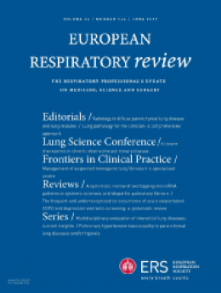
Principe S, Jarjour NN. Eur Respir Rev. 2025 Apr 2;34(176):240181. doi: 10.1183/16000617.0181-2024.
Abstract

Asthma treatment has seen significant advancements over the recent years. However, despite improvements in disease control, some patients continue to experience persistent symptoms and exacerbations, necessitating a deeper understanding of disease mechanisms and optimisation of treatment strategies. The introduction of biologics has marked a new era in severe asthma management, targeting underlying molecular mechanisms and raising the possibility of achieving asthma remission. Key indicators of remission include high asthma control, absence of exacerbations and stabilised, or normalised, lung function. However, there is currently no common definition for remission, with various studies using different criteria. Real-world studies and post hoc analyses of clinical trials emphasise the potential of biologics in achieving clinical remission in a significant proportion of patients. Here, we provide a comprehensive review of studies in support of incorporating asthma remission as potential goal in asthma management. Despite the lack of a universally accepted definition and large prospective studies focused on remission, we believe that incorporating long-term outcomes and the currently accepted elements of remission in the approach to asthma care will shift the emphasis from reactive symptom control to proactive disease management, ultimately aiming for better asthma outcomes.
